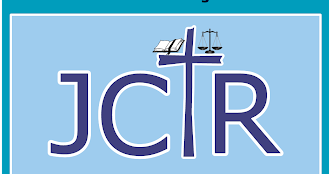ZAMBIA: Civil Society Organizations Call for Government’s Transparency in Debt Management

Credit: Courtesy Photo
Sr. Jecinter Antoinette Okoth, FSSA
The Jesuit Centre for Theological Reflection (JCTR) together with other Civil Society Organizations (CSO) in Zambia have called on the transparency of the government on debt management issues.
The CSO Debt Alliance is a coalition that seeks to improve public debt management in Zambia in a harmonized manner as it creates a platform for advancing stronger debt accountability and advocates for a clear and publicly accessible roadmap for debt sustainability in the country.
In a statement published Thursday, October 14, members of the coalition appeal to the government to “ensure transparency in their public debt management and revise the legal framework guiding debt to ensure there is adequate oversight of debt contraction as well as provisions for transparency and accountability.”
They added that the government should “ensure the inclusion of civil society actors in public finance management processes and debates, particularly around key social sectors to ensure that decisions, policy reforms, and subsequent actions are well informed and consultative.”
In their Thursday collective statement, CSO members note that access to debt information has “historically been sporadic, inconsistent and opaque to the public.”
“There is need to align parliamentary oversight in debt contraction, increase transparency and accountability and develop borrowing plans before contracting debt,” reads an excerpt of the statement adding that “Policy reforms are key to strengthen the debt management policy framework which include Debt Management Strategies and Debt Sustainability Analyses.”
According to the alliance that advocates for stronger debt accountability in the country, Ministry of Finance report “Indicates that there has been an increase of about US$ 2 billion in debt owed to foreign creditors in the year of 2021 with external debt cited to be US$ 14.48 billion.”
Due to Covid-19 impact on economy, the previous government launched Economic Recovery Programme (ERP) for the period 2020- 2023 to help “Restore macro-economic stability; attain fiscal and debt sustainability; restore growth and diversify the economy; dismantle domestic arrears and avoid accumulation of new arrears; and safeguard social protection programmes.”
Members of the coalition have noted that, “The recent changes in the political arena have called into question ERP and whether or not it aligns with the plans of the new Government.”
They add, “The need for the Government to adopt the contents presented in the ERP and consequently develop a workable implementation plan that will facilitate attainment of debt sustainability and restore economic growth.”


